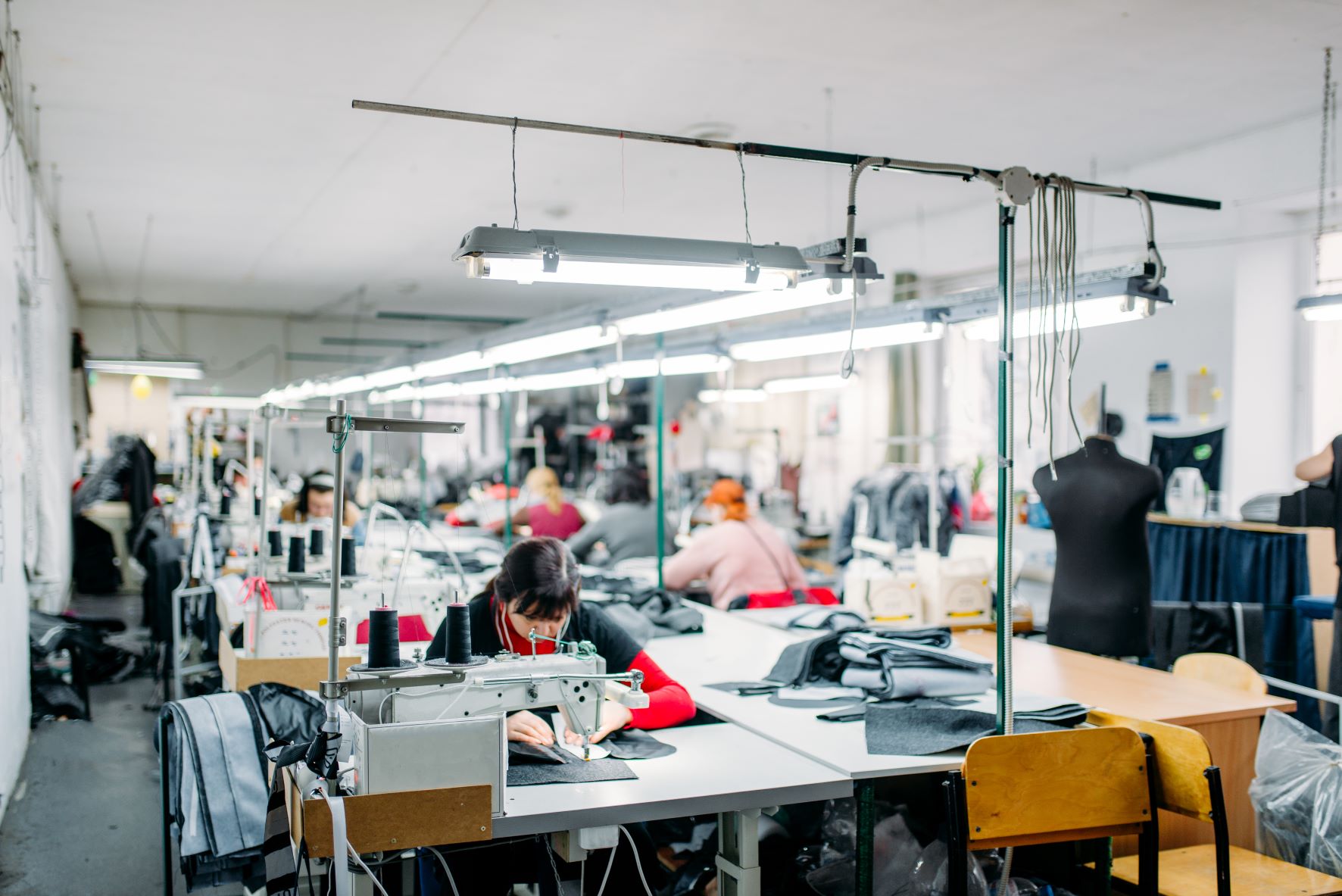
As of 22 February, the Supplier Hub system launched by Boohoo requires each new supplier to obtain independent approval from Sourcing, Ethical Compliance, Factory Approver and Finance, and buyers will be unable to raise any purchase order from a factory or suppliers outside the system.
It was announced as part of the final report under the Boohoo Agenda for Change (A4C) programme conducted by Sir Brian Leveson.
The assurance processes are overseen by the Group’s ethical compliance team who undertake visits to manufacturers in order to assess order management, capacity, quality, training and progress on any remediation steps that audit has previously revealed as necessary.
Overseas, Boohoo has employed staff in a number of foreign countries (in particular, Italy, Turkey and China) who can follow up on issues that arise and to mirror to such extent as is possible the visits that are now common in the UK. KPMG has confirmed that these measures continue to remain effective and progress is regularly reported through an appropriate internal governance forum providing transparency to the Board.
Agenda for Change Programme
The group has recently opened a new 23.000 sq ft factory in Leicester which it says is “proof of its commitment to the city of Leicester and ethical British manufacturing.”
The manufacturing site is said to deliver capacity for tens of thousands of garments, with facilities to support both Made to Order (MTO) and printing.
The site will also be used as a training facility for product teams across all 13 brands operated by the Boohoo Group. In addition, it will be used to provide guidance to Boohoo suppliers, with a focus on supporting them to improve their operational and production efficiencies making their business more sustainable, the group says.
The new facility comes after Boohoo Group found itself embroiled in a media storm in 2020 regarding its supplier factories in Leicester, which were alleged to be underpaying workers and making them work in unsafe conditions.
Since then the online fast-fashion giant has been taking steps to repair its reputation, including publishing its international factory list detailing 1,100 factories and appointing Kirsty Britz to its board as non-executive director in a move it said at the time of her appointment bolsters its expertise in areas of Environmental, Social and Governance (ESG) matters.
Social sustainability
The final published report in the A4C programme also outlined 23 distinct Key Performance Indicators (KPIs) that have been designed to ensure that Boohoo is managing against the issues that arose during the course of the Levitt Review. Some, but not all of these are operational, with a fuller set of reporting expected to commence later this year as data from new systems becomes available.
Of the published Responsible Purchasing Practices the commitment to ensuring that buyers across the group “understand what a fair price is for garments” has been in focus since the last reporting period. Thurmaston Lane is being used as a template for open costings and, at the same time, Boohoo sourcing teams are actively engaging with suppliers in an open costings exercise which has the primary goal of focussing on enhanced production efficiency to ensure that suppliers remain competitive and retain a reasonable profit. A training programme to support buyers (intended to be based at Thurmaston Lane) is in plan but remains a work in progress.
UK Sustainability: UP FRONT
Mentioned in the September report, Boohoo had begun trialling a pilot in relation to waste management. It involved 11 UK manufacturers working with a waste management partner to find recycling opportunities with the objective of ensuring that manufacturing units are not sending textile waste to landfill. The waste management programme that has been devised as a result is due to be rolled out across its UK manufacturing units with the aspiration to embed it within the UK supply chain such that there should be no waste to landfill from the supply chain by 2025.
Parallel to this project, Boohoo is working to review the textile recycling landscape with the aim of identifying new solutions using the latest technology to improve the recycling of synthetic fibres for re-use. Second, as part of its membership of the Sustainable Apparel Coalition, a facilities environment module is being deployed to the UK and top 50 global suppliers to help assess energy usage, waste management and the broader environmental impact with a view to creating a benchmark from which to drive improvement. Using the data collected, not only will suppliers gain a better understanding of environmental impact (including energy efficiency, renewable energy and waste) but they will also be able to identify where efficiency improvements can save costs.
Leveson concluded Boohoo’s transformation is still a work in progress and the final report in no way marked “the end of the process”.
“I have no doubt that there will continue to be challenges and difficulties along the way and Boohoo must be prepared to demonstrate that, in relation to each aspect of its business, it has exercised due diligence to ensure that legal and ethical standards have been maintained by all both in the business itself or, just as important, in its supply chain,” Leveson said ” In particular, continued and continual attention to the way in which those in the supply chain are manufacturing garments will be essential and, should lapses become apparent, necessary steps taken to enforce its Code of Conduct.
“Running through the Levitt Review is the observation that Boohoo had failed to appreciate that running a great company required social responsibility as well as growth. That message has been heard, understood and is in the course of being remedied, with very substantial steps already taken to recognise the wider picture beyond commercial success. As this transformation programme moves into business as usual, I trust that the dynamism which has been demonstrated throughout Agenda for Change will continue and wish the Group success.



